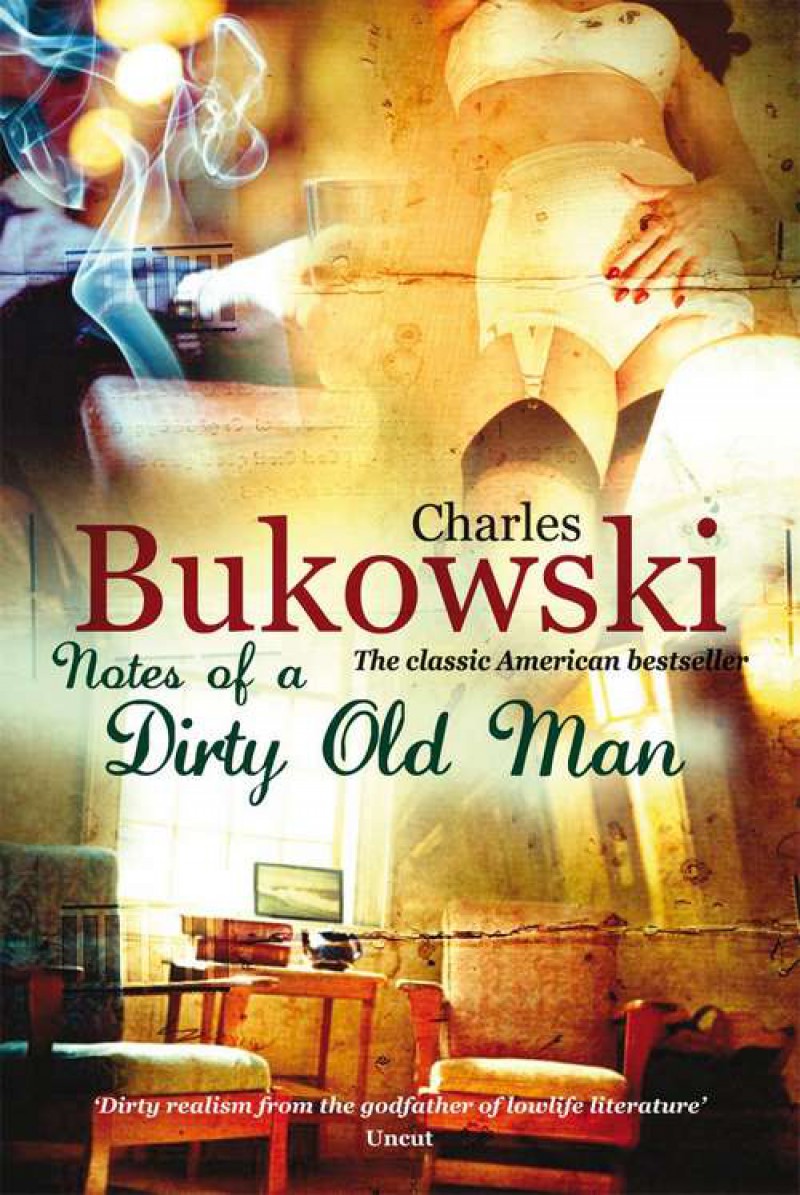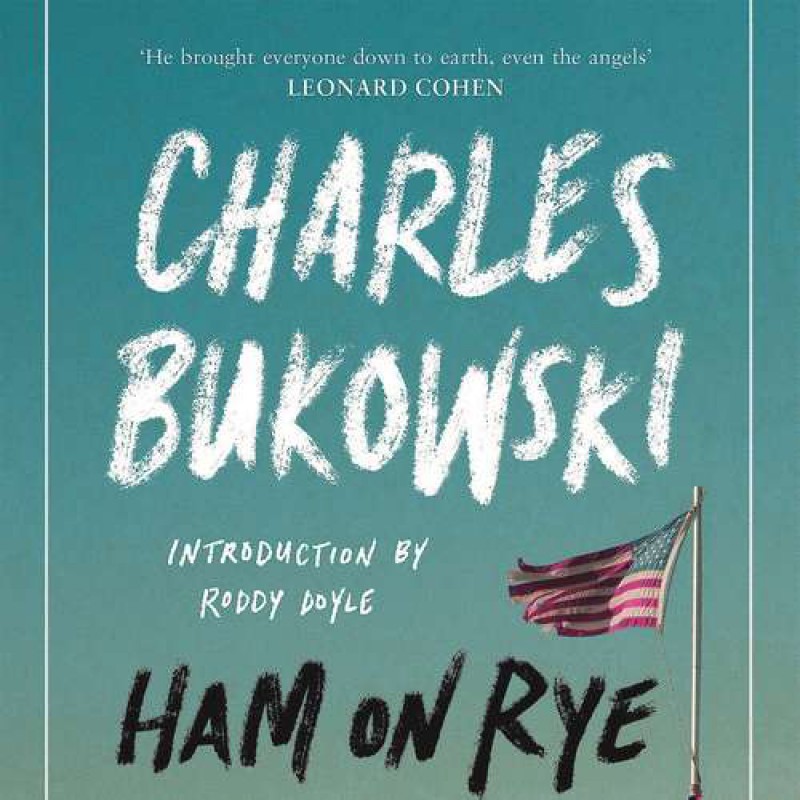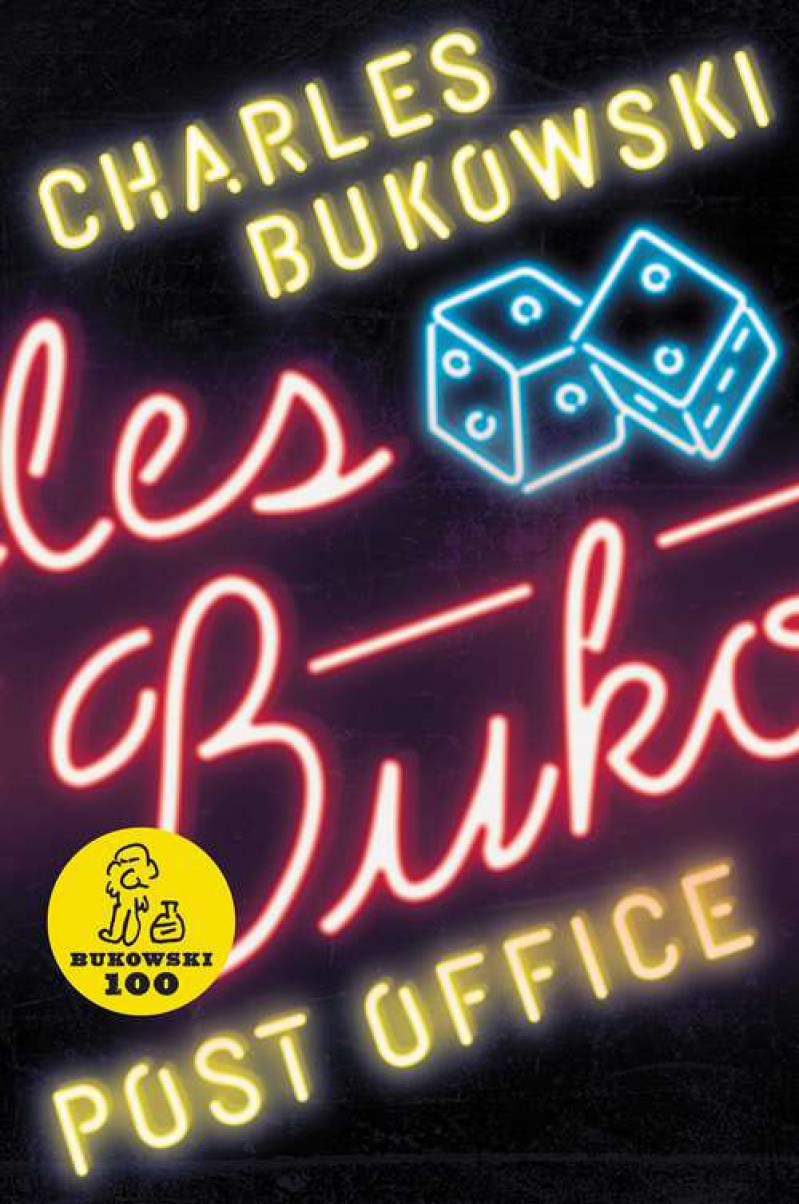Henry Charles Bukowski was a famous novelist, poet, and short-story writer. His books "Post Office," "Factotum," "Women," and "Ham on Rye" brought him tremendous popularity. Buk published his first short story, "Aftermath of a Lengthy Rejection Slip," in the magazine Story when he was only 24. He based his writing on Americans' ordinary lives, alcohol, relationships with women, and work struggles. Even though Buk is an exceptional author, we can't compare him with Walt Whitman, for instance. Bukowski's writing style was unique, and frankly, he knew that he wasn't a "great" author himself. Moreover, he devoted his last book, "Pulp," to bad writing. So, check out our top ten list of Bukowski's most exceptional and controversial books, as you'll want to read some of them.
10. Hollywood
 A collection of Charles Bukowski books. Photo by JOSHUA COLEMAN on Unsplash
A collection of Charles Bukowski books. Photo by JOSHUA COLEMAN on Unsplash
The novel "Hollywood" begins with a film director's proposal, who offers Chinaski, the protagonist, to write a screenplay. Bukowski guides us through a fictionalized tale of writing and creating the film "Barfly." Also, he mentioned his viewpoints on all the intrigues that surrounded him from the very beginning.
The author shows us an excessively sarcastic aspect of the movie-making machine. Nonetheless, if you want an honest book about Hollywood life, you'll adore this one. However, if you haven't watched the film already, it will enhance your pleasure after reading the book. The main star of the movie is Mickey Rourke.
9. Pulp
"Pulp" manifests Bukowski's kind of humor and reality.
The novel "Pulp" is the last book Bukowski wrote. It was published in 1994, soon after his death. Buk leads his readers on one last ride into well-known areas of death, madness, and sex while at the same time developing those themes in ingenious ways. "Pulp" is a fiction novel that Buk dedicated to "bad writing." The plot is a complex detective story about a rough investigator who manages to solve his cases by waiting them out.
As a reference to himself, Buk creates the fictional character, Raymond Chandler, an author from Los Angeles who sets his stories there, the same as Bukowski. Buk also added more than his usual amount of violence, sarcasm, and cynicism since he knew death was around the corner. The less known fact is that a punk band from Chicago called "Alkaline Trio" found inspiration for this song in the novel "Pulp."
8. Factotum
Factotum has a film adaptation of the same name in 2005, starring Matt Dillon, Lili Taylor, and Marisa Tomei
Bukowski's second novel, "Factotum," is the book that vividly describes his fictional universe. The plot was set around World War II, and it portrays the story of Buk's alter ego, Henry Chinaski. After being rejected from the military service, he's struggling to find a job. He was seeking work that won't be an obstacle on the way to his passion - writing.
So, Chinaski moves through various cities and jumps from one weird job position to another. However, he's constantly struggling as he can't last long anywhere. Therefore, his journey fulfills the presence of low-moral ladies, filthy motel rooms, and drunken fights. The "Factotum" is one of Bukowski's best novels that also got a movie adaptation of the same name.
7. Women
Bukowski himself drew the picture of the woman on the cover of his book
Once again, Buk created a magnificent novel, "Women," with Henry Chinaski in the central role, of course. In this one, Buk describes Chinaski's later life, when he had already become a well-known writer and poet. However, he couldn't maintain stability on both fronts - work and love life. So, even in his fifties, he successfully continued to follow his dissolute style of living life to the fullest, including countless hangovers and a bunch of meaningless "ladies of the night."
Accordingly, he described Chinaski's displeasure with every new woman he gets in touch with. This is a follow-up story to his other two novels - "Factotum" and "Post Office." Interestingly, Bukowski himself drew the picture of the woman on the cover of his book.
6. The Days Run Away Like Wild Horses Over The Hills
Collection of novels written for Bukowski's first love, Jane
"The Days Run Away Like Wild Horses Over The Hills" is one of Bukowski's first and maybe best works in the art of poetry. Buk dedicated it to his first love, Jane, and showed readers a more emotional part of his soul.
He created this collection where he wrote tender words for her, but at the same time, we can feel his grief since she drank herself to death. We see how Buk hides his softer side beneath the rough older man's mask as we read those poems.
5. Notes Of a Dirty Old Man
 Bukowski's short stories like "Notes of a Dirty Old Man" were considered his trademark raw humor Photo: Amazon
Bukowski's short stories like "Notes of a Dirty Old Man" were considered his trademark raw humor Photo: AmazonIn the late 1960s, Bukowski wrote for the underground newspaper "Open City" as "Notes Of a Dirty Old Man" represents those columns' collections. It consists of plenty of different articles in which he described his views on the world in those days.
Bukowski wrote honestly about various topics, not shying away from murder, abuse, rape, alcoholism, and many other controversial subjects. There are some very realistic and fantastic short stories, but also many chaotic and weird ones.
4. The Last Night of the Earth Poems
The poem "Bluebird" is Bukowski's brilliant piece of art
"The Last Night of the Earth" is most likely every Buk fan's favorite collection of poems. Already in his seventies, he wrote it while giving his readers a throwback to his life in a unique way of writing. The book is about 400 pages long and consists of numerous poems, including the famous "Bluebird."
Moreover, you can click on the video and listen to the beautiful narration of the "Bluebird" poem. This is a marvelous collection of all things Bukowski wrote, from his sharp sense of humor to his most sincere confessions.
3. Love Is a Dog From Hell
"If there are junk yards in hell, love is the dog that guards the gates."
The collection of poetry, "Love Is a Dog from Hell," is a book Bukowski wrote in the mid-seventies, and it represents his signature style of creating poems. Also, we highly recommend this book since it contains some of his best pieces of poetry.
Buk had a simple writing approach, as he was direct and never used any complexity in his descriptions. Besides, this quote from "Love Is a Dog from Hell" favors his simplicity: "It's so easy to be easy—if you let it."
2. Ham On Rye
 Ham on Rye by Charles Bukowski book cover
Ham on Rye by Charles Bukowski book cover
"Ham on Rye" represents Bukowski's semi-autobiographical novel, which he wrote in 1982. The story follows Buk's alter-ego Henry Chinaski, during his early years between 1920 and 1941. It starts with Chinaski's first memories and introduces us to the cruel stories about his abusive father.
He makes Henry go to some private school where he can't fit in among the other spoiled, rich kids who were everything he wasn't. At the same time, Buk very realistically described Henry's terrible problem with acne. His family issues and incapability to fit into society helped Chinaski become an outsider and drown his inner demons in alcohol.
1. Post Office
 "It began as a mistake" is such Bukowski's way of starting a novel Photo: Amazon
"It began as a mistake" is such Bukowski's way of starting a novel Photo: AmazonThe novel "Post Office" from 1971 is Bukowski's first and probably the best one. He published this English language classic in 1971 when he was fifty years old, leading to national fame. Bukowski wrote a story that follows his alter ego Henry Chinaski in finding a job at the Los Angeles Post Office.
The novel starts with not so promising but Buk's unique-styled opening lines: 'It began as a mistake.' The main character, Henry Chinaski, has lost over a decade in the U.S. Postal Service. Once again, with a weird sense of humor and sarcastic points of view, Buk describes Chinaski's moving from place to place, getting through life with liquor and women. We highly recommend it if you didn't read "Post Office," since it's a classic.
We hope you enjoyed our top ten list of essential Charles Bukowski books. Have you read some of them? Which one do you appreciate the most? Please tell us in the comment section.
Cover photo: TopTens.fun/Midjourney